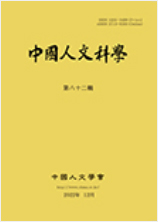이 글은 중국 先秦時代 葬墓文化에 나타나는 風水觀念을 고전과 제자서를 참고하여 고찰한 것이다. 사람은 태어나면 누구나 죽음을 피할 수 없는 필연적인 自然의 法則이다. 사람들은 생명과정에 순탄함도 있고 그렇지 못한 경우도 있다. 유적지를 통해 확인할 수 있었던 죽음은 최초에는 공동으로 무덤이 존재했다는 것이다. 물론 거기에는 혼자 묻힌 경우도 있다. 이러한 상황은 풍수관념적인 요인으로 충분히 볼 수 있다. 풍수에서는 물이 가장 중요한 요소인데, 고대 사람들도 물과 떨어져 살 수는 없었다. 埋葬하는 것은 감추고 갈무리한다는 의미로 사용되었다. 들판에 버렸다가 어느 날 그 앞을 지나다가 짐승들이 해치는 것을 보고 덮어 줄 수 있었던 마음은 부모자식간의 애틋한 정이 작용한 것이다. 이것은 조상과 후손간의 인정의 끌림을 논술하는 것인데, 음택풍수의 결과물이기도 하지만, 자연의 순리를 따라야함을 서술하고 있다. 生과 死는 풍수지리에서 중요한 공간과 시간을 차지하는데, 살아서는 주택에 의지하여야 하고 죽으면 묏자리에 안장된다.
In this paper, the idea of Fengshui(風水觀念) in the funeral culture in Pre-Qin era of China was examined with classics and the books of Hundred Schools as reference. It’s an inevitable law that once a person is born, he or she cannot avoid death. Some people’s life goes well in the process of life while that of others doesn’t. The death verified in historic sites shows that, at the beginning, cemetery existed jointly. Of course, sometimes a person was buried there alone. This situation can be seen as an element of Fengshui idea. In Fengshui, water is the most important factor, and ancient people also couldn’t live apart from water. Burial(埋葬) had the meaning of hiding and putting away in order. When a person threw away a body, saw animals damaging it while passing by the place one day, and covered it, the loving affection between a parent and a child was working. It states the attraction of sympathy between an ancestor and a descendant. It’s the outcome of grave Fengshui, and it also states that one must follw the ways of nature. Life( 生) and death(死) take up important space and time in Fengshui. When one’s alive, he/she should rely on a house, and when one’s dead, he/she is buried in a grave site.
Ⅰ. 서론
Ⅱ. 선진 제자서에 보이는 風水觀念
Ⅲ. 先秦時代陰宅風水觀念
Ⅳ. 先秦時代厚葬과 節葬의 風水觀念
Ⅴ. 결론
(0)
(0)
